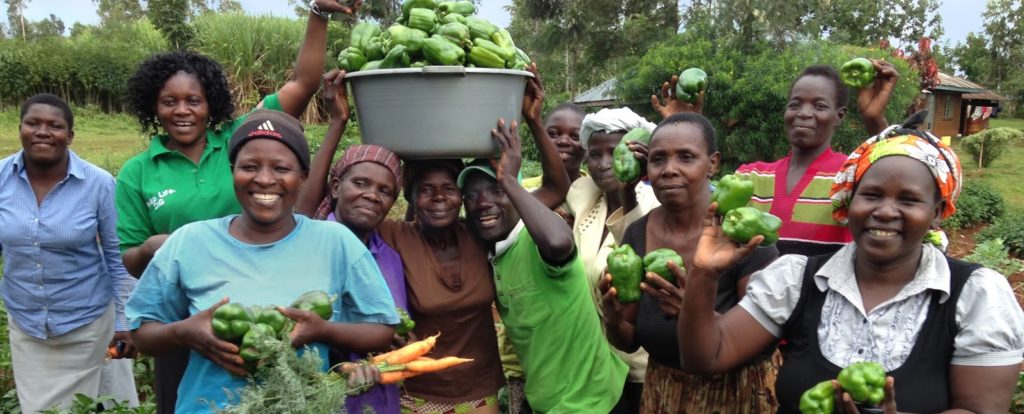It’s an early, cool Wednesday morning; the sun is still low in the sky, but the chorus of cicadas and crickets reminds us of the heat that’s coming. The Wechaya HIV Support Group is meeting in their community garden. Quiet talking and laughing can be heard as women dressed in vibrantly patterned skirts make their way down the narrow cow paths and gather in the shade of a broad mango tree. Organized through DIG’s Mobile Farmer Field School program, these women have come together to tend their garden and invest in their future. The four-month long, hands-on initiative covers a myriad of topics, from soil management, organic pest control, water conservation, climate resilience and seed saving, to farm management, marketing, and nutrition for people living with HIV.
Wechaya means “Don’t Despise Us.” The group gave themselves this name to make a statement to their peers. They wanted their community to see the value they bring and look beyond just their HIV status. This area has one of the highest HIV-infection rates in Kenya – a staggering 25% of the population. There is no one that has not been touched by the disease, and stigma is still a stark reality for many.
Determined to be seen as more than their status, this group was motivated to join forces to earn an income, supply their community with diverse produce and provide nutrient-rich vegetables to their families. Today, they have become consistent and dependable suppliers of green peppers and other produce to the local market, and collectively they earn a regular income as a result. On average, the group makes $50 a week on harvest sales alone and the members are reporting a dramatic increase in their consumption of garden produce at home. Where families had previously supplemented one meal a week with vegetables, they are now supplementing five or more. With this new income, the group has implemented a savings-and-loan program, which supplies small loans to its members. These loans are paid back at competitive rates, and have allowed individuals to invest in small business opportunities, pay school fees, enhance their personal farms and make improvements on their homes. Today, the Wechaya group stands with pride in what they contribute to their families and the larger community. They are respected, even sought after, as experts in DIG’s agricultural techniques. Their name no longer stands for their fears, but now affirms their triumph and their ability, even in the toughest circumstances, to thrive.



